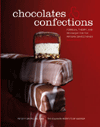St. Louis grocer United Provisions draws young, international customers with fresh, global offerings
United Provisions serves Washington University students, adventurous eaters.

In the Delmar Loop, it’s not unusual to see musicians playing with open instrument cases in front of a statue of the late Chuck Berry. Nor is it strange to see both hipsters and hippies stroll the St. Louis Walk of Fame, sidewalk squares honoring the achievements of actors, musicians and other figures born in the area.
With its bohemian vibe, funky shops and eccentric eateries, the Delmar Loop is unlike any other neighborhood in or around St. Louis. And that’s exactly why people visit, says Shayn Prapaisilp, a member of the group that owns global grocery store United Provisions.
“The mix of retail there is really unique,” he says. “It’s a really diverse street, so I think people are looking for something a little different.”
United Provisions fits right into the six-block district, located seven miles west of St. Louis and a few blocks north of Washington University. The 15,000-sq.-ft. corner store offers an array of products catering to adventurous eaters and international students. In fact, the store is on the bottom level of one of the university’s apartment-style residence facilities.
“With Washington University increasingly becoming a global university, they’re having a lot of students coming to attend from around the world,” Prapaisilp says. “They wanted a grocery store to be able to help the international students feel at home. We fit the bill for them, and they invited us to open a store in their dorm.”
Prapaisilp and his family were the right people to call. Prapaisilp’s father, Suchin, and Suchin’s brother, Jay, opened their first global grocery store, Jay International Food Corp., in the 1970s. Global Foods Market followed in 1991 in Kirkwood, Mo., and United Provisions opened in 2014.
The Prapaisilp family also owns the King and I Thai Restaurant in St. Louis and two sushi restaurants in the suburbs — Oishi Sushi in Creve Coeur and Oishi Sushi & Steakhouse in Chesterfield.
While the Prapaisilps specialize in Asian cuisine, their grocery stores offer more than 12,000 items from 120 countries. Prapaisilp estimated United Provisions has 75 to 150 SKUs of candy alone.
“We take the hard way in terms of sourcing,” he says.
Prapaisilp says the store works with about a dozen international candy vendors representing the Middle East, Latin America, South and East Asia, and other regions to bring in a unique mix of candy that keeps customers coming back for more.
Not shockingly, Japanese candy sells well, particularly because of flavor combinations not often seen in North American offerings. Prapaisilp pointed to Matcha Green Tea KitKat as an example.
“People try them once and think it’s kind of weird, but then they’ll fall in love with them,” he says.
And then they snap up all the stock, making it tough to keep them available.
“It’s kind of a double-edged sword,” Prapaisilp says. “At times, it’s pretty difficult to source some of the candies. We’ll get a shipment in once and people love it and buy all of it.”
Apart from exotic candy, United Provisions emphasizes fresh offerings, from produce to grab-and-go items. A hot kitchen produces Asian favorites including ramen, udon noodles, bahn mi sandwiches and bibimbap, a bowl of rice, egg and vegetables. And, with the Prapaisilps’ expertise in sushi — and the grocery industry’s growing interest in in-store dining — United Provisions has a sushi bar, where customers can order pieces a la carte or whole rolls.
Prapaisilp said offering hot to-go items is important for their main consumers — Millennials and young people living on their own who want more than a frozen pizza or TV dinner.
“They come to the Delmar Loop in particular to see something different and get outside their comfort zone a little bit,” he says.
Matcha Green Tea KitKat anyone?
Looking for a reprint of this article?
From high-res PDFs to custom plaques, order your copy today!









